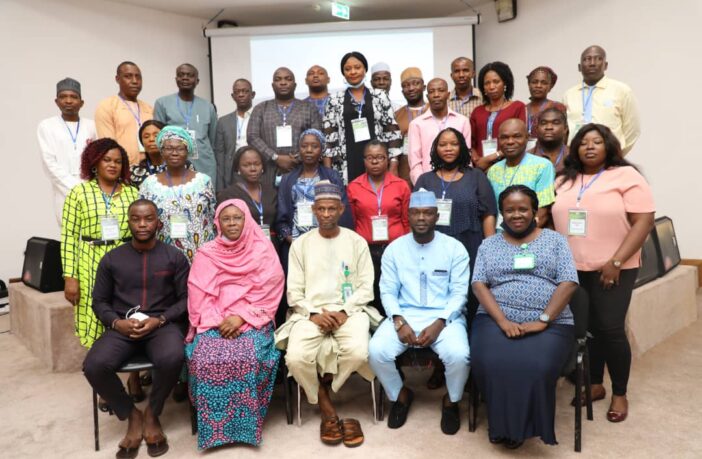The Director General, National Information Technology Development Agency (NITDA), Mallam Kashifu Inuwa Abdullahi, CCIE, reiterated that eGovernment is the best alternative to achieve innovation and growth while developing Nigeria’s Digital Economy.
Abdullahi said this at the first batch of the Service-Wide Capacity Building on eGovernment (Professional Course) for public servants on grade level (08- 14) at the eGovernment Training Centre, Kubwa (e-GTC), Abuja, the Agency’s programme to prepare public servants with the required skilled manpower towards the implementation of the e-Government master plan, in line with National Digital Economy Policy and Strategy.
Represented by Director, Zonal Office Directorate e-GTC, Professor Suleiman Abdullahi during the opening ceremony, he remarked that the training is intended to make sure that e-Government is the Best Alternative for Smart Innovation and Change (BASIC), introducing the engine that powers economic growth and social development in Nigeria.
Participants of the training were selected from the various Ministries, Departments and Agencies (MDA) of the Federal Government with the zeal to make them key into the initiative of the e-Government master plan aimed at the growth and development of the country.
The training course encompasses of: overview of e-Government in Nigeria, Nigeria e-Government interoperability framework, e-Government initiatives: Technical Subsystems, Emerging IT Trends: Big Data, IoT, Cloud and Artificial Intelligence and Blockchain, Change Management, e-Government for sustainable National Development in Nigeria, e-Government projects planning and development, Security in e-Government, G2C portal (Government), Cyberspace, Cybersecurity and CETS.
Abdullahi said: “The objectives of the training is to provide opinion leaders with a clear understanding of e-Government as the (BASIC) for the Nigerian Government and gain a clear understanding of e-Government, technological and cultural characteristics of ICT and the philosophy of e-Government for creating services, thus changing the mindset of public officials as service providers in a transparent environment.
“The course empathizes on the core value of e- Government, which relies on the re-engineering of government business process, motivating public officials to innovate the way government function. It also intends to promote the understanding of e-Government master plan for Nigeria, thus preparing the driving forces for the plan to be implemented.”
“We expect to bring about the leaders mindset on e-Government, helping to prepare a favorable environment for mobilizing the resources required for e-Government projects and capacity building programme for citizens as well as public servants,” he urged the participants.
e-Government Is Alternative For Smart Innovation – DG NITDA
Share.




